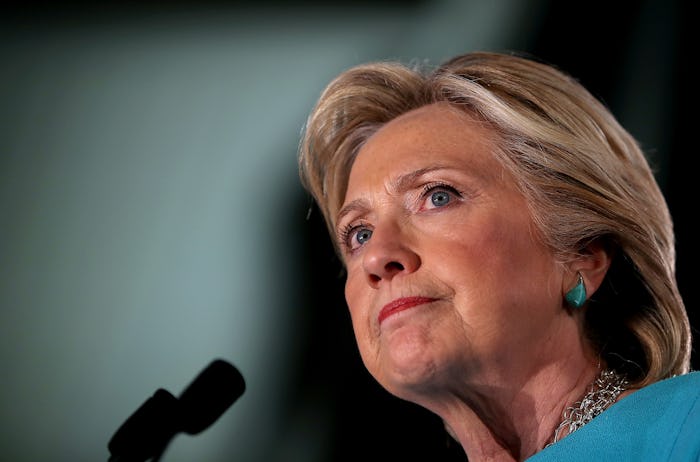News

Would Hillary Clinton Win Florida If Third Party Voters Made A Different Choice?
With much of the election hinging on what happens in Florida, Hillary Clinton may very well be cursing the name of Libertarian candidate Gary Johnson. With Johnson picking up hundreds of thousands of votes in Florida, it could very well be the factor that actually allows Donald Trump to pick up the state. So, would Hillary Clinton win Florida if third-party voters made a different choice? At this point, it's certainly too close for her comfort.
As with elections past, the presidential battle between Trump and Clinton seemed destined to play out in Florida well before Election Day. As many political analysts said, Trump's path to victory was highly unlikely if he couldn't win Florida. That led both candidates to focus a lot of their attention in the final days of their campaigns, much of which was spent directly attacking each other.
But, perhaps that led Clinton to overlook the X-factor who could actually be responsible for ending her presidential hopes: Despite predictions that he wouldn't cause many waves, the number of votes Johnson earned in Florida were detrimental to Clinton.
As for whether Johnson was more of a threat to Clinton than Trump, polls from earlier in the campaign season painted a clear picture: For example, a national poll from September had Clinton at a 5 percent lead over Trump in a head-to-head matchup. But, when Johnson and Jill Stein were included as options, Clinton's lead fell to 2 percent.
That was a concern for the founders of vote-trading organizations, such as Trump Traders. As their website put it when encouraging people to move votes for Johnson and Stein away from swing states like Florida, "If even a few thousand third-party supporters in Ohio, Florida, and Pennsylvania swap their vote to another state, it could be the difference between a Clinton or Trump presidency. Third-party voters in these swing states are likely to determine the outcome of the Presidential election."
As it stands, with 98 percent of the precincts in Florida reporting, Trump had 48.9 percent of the vote while Clinton had 47.9. Meanwhile, Johnson had 2.2 percent and Stein had 0.7 percent. That means that, yes, it really could have been different for Clinton — or, rather, all of us — if third-party voters in Florida made a different choice.
That in mind, it seems those "protest votes" in Florida really may have carried more weight than even anticipated.